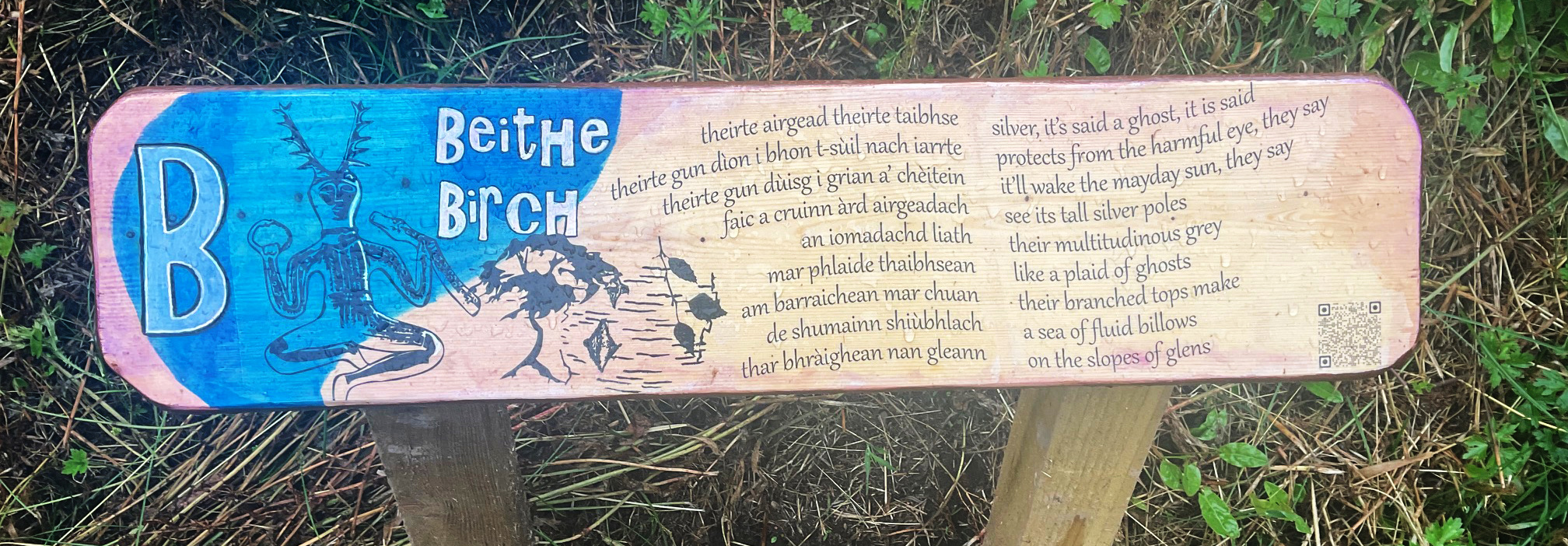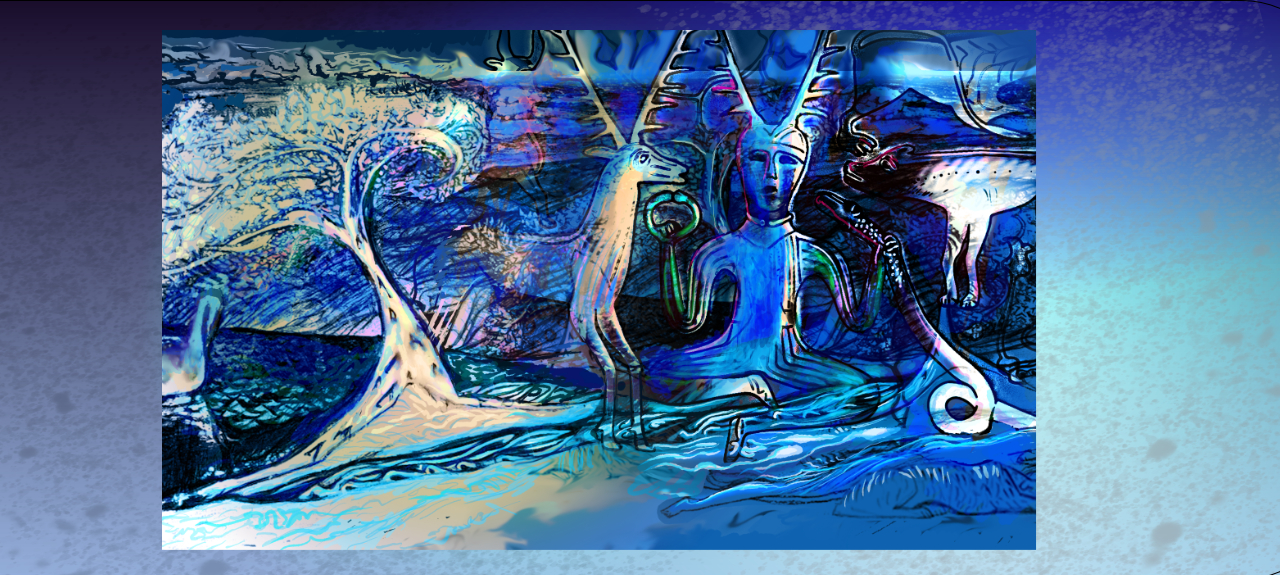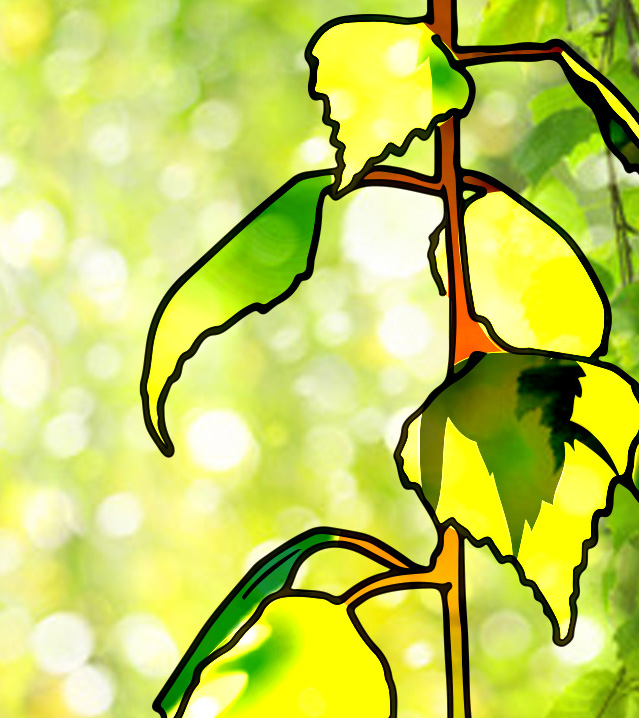
B L N F S H D T C M G P R A O U E I


theirte airgead theirte taibhse
theirte gun dìon i bhon t-sùil nach iarrte
theirte gun dùisg i grian a’ chèitein
faic a cruinn àrd airgeadach
an iomadachd liath
mar phlaide thaibhsean
am barraichean mar chuan
de shumainn shiùbhlach
thar bhràighean nan gleann
’s i oighreachd gealbhuinn
sliochdmhorachd a buadh
theirte gur slat a’ ghaoil i
cuin a chunnacas crann
cho seang cho subhach
cho dìreach cho lìonmhor
leann mar loinid ann a fèithean
fìon brodach ann a fèithean
mìlseachd nam pòg ann a fèithean
silver, it’s said a ghost, it is said
protects from the harmful eye, they say
it’ll wake the mayday sun, they say
see its tall silver poles
their multitudinous grey
like a plaid of ghosts
their branched tops make
a sea of fluid billows
on the slopes of glens
it’s the sparrow’s estate
fertility is in its gift
the tree of love, it is said
when was a mast seen
so slender so merry
so straight so copious
a froth of ale in its veins
a teasing wine in its veins
sweet sap of kisses in its veins
Closer to home, in Ireland, beithe/ birch was referred to as the 'mother of learning' and began the alphabet. Lug (of the Long Arm) was warned that his wife was about to be taken to the underworld in the first ogham inscription brought to Ireland and carved onto the birch tree.

 ;
;
Protection by birch is another common theme throughout Europe. Cradles made of it protected babies, particularly from becoming changelings (swapped with a surrogate fairy creature), and a birch broom had both practical and ritual use in brushing out spirits, after which it was hung up by the roof or above the door as charm.
Birch was once a strong symbol of fertility and many festivities are associated with birch groves, especially at Beltane, when (not that long ago) marriage vows were lifted for the one day and customs such as the 'handfesting' gave pagan licence to youth for the day! In a Welsh poem
:Is it true, the girl that I love
that you do not desire the birch,
the
strong growth of summer?
/be not a nun in spring,
ascetism is not as good as a bush...
come to the spreading birch
to the religion of
the trees and the cuckoo
(Fife 1994)


Because the church eventually outlawed such a custom, it was turned on its head and the birch tree itself was brought into the village, decorated colourfully and a spring festival held around it - and so the maypole first appeared in the thirteenth century. Still concerned by the pagan element, the Church insisted that sprays of the tree be brought into churches for Whitsun decorations, and so it was that birch customs gradually adopted their christian aspect. A Whitsun custom remains in Russia, where a small birch tree is still brought into the house for three days and in honour of the spirit of returning life. Further north, in Siberia, birch is honoured as the 'deity of the door', helping shamans cross to and from the spirit world.